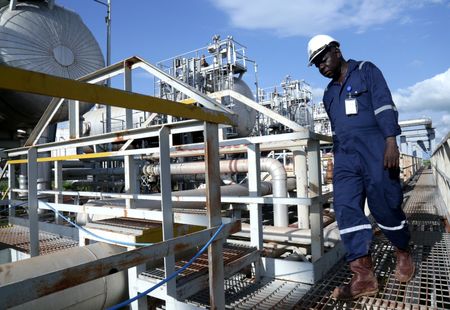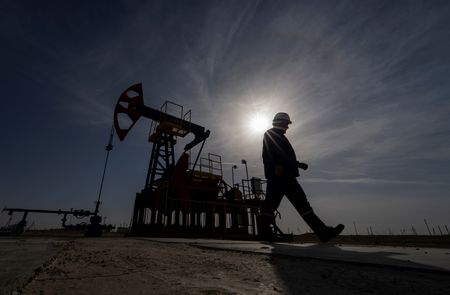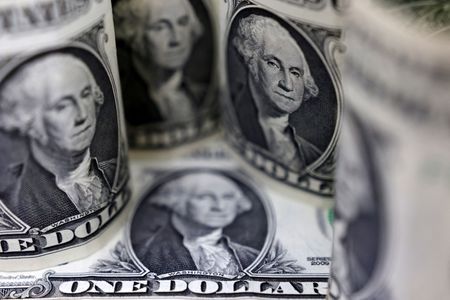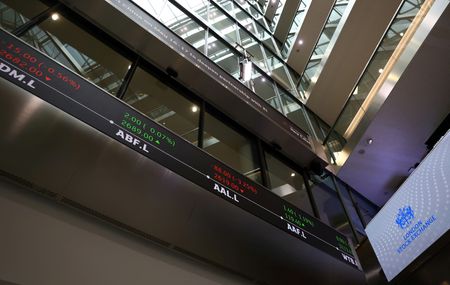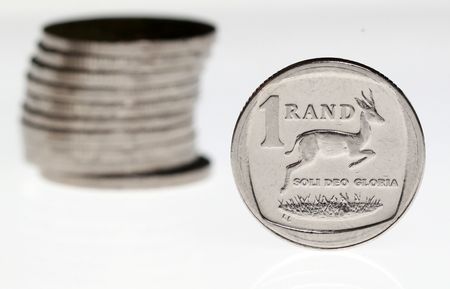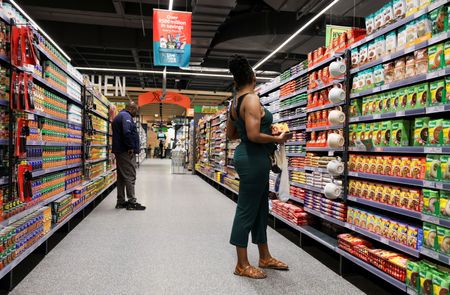By Vuyani Ndaba
JOHANNESBURG (Reuters) – The South African Reserve Bank is now expected to lift its repo rate 25 basis points in May and 50 basis points in Q3, according to a Reuters poll in which inflation forecasts rose again as rising costs increase the chances of second-round effects.
Thirteen of 17 economists in the April 14-21 survey concluded the central bank would hike its repo rate by 25 basis points to 4.50% at its May policy meeting, almost in line with the March poll. The other four said it would be a 50 basis-point hike to 4.75%.
A majority in the survey predicted the SARB will hike again in the third quarter by 50 basis points to 5.00% compared with only once in the third quarter to 4.75% in the March poll.
The SARB is then expected to pause in November at 5.00%, and then hike by 25 basis points every quarter, but pausing at 5.75% at the final policy meeting of 2023.
That would be eight interest hikes in total since the start of this year compared with seven in the previous poll.
Hefty goods price rises have pushed inflation expectations above the 4.5% mid-point target and the SARB is understandably more concerned now about second-round effects, wrote Gina Schoeman, economist at Citi, in a research note.
“We forecast consecutive 25 basis point hiking with the door open for a 50 basis point move if second round effects surprise to the upside,” Schoeman added.
The U.S. Federal Reserve is expected to raise rates by a half percentage point on May 4 and continue with a series of hikes this year designed to combat inflation now running at a four-decade high.
The SARB’s official aim is to keep inflation in the 3%-6% range. The poll medians predicted inflation will average 5.7% this year and slow to 4.6% next year.
South Africa’s annual inflation rate rose to 5.9% in March from 5.7% in February, driven mainly by food and fuel price rises following Russia’s invasion of Ukraine.
Some governments have responded to rising prices by cutting fuel taxes or granting subsidies. In South Africa, the fuel levy has been temporarily cut by 1.50 rand ($0.0973) per litre of petrol for two months, providing a temporary reprieve to consumers.
Mpho Molopyane, economist at Rand Merchant Bank, said if the reprieve were to be extended for another 10 months, this could shave 0.2 percentage point from this year’s headline consumer price inflation.
“The added benefit would be much lower second-round effects to core inflation and food prices, which could lead to a further moderation in headline CPI inflation,” said Molopyane.
Growth in South Africa’s economy, plagued by rotational power cuts, is expected to slow markedly to 1.9% this year and 1.8% next year from 4.9% last year, in line with last month’s consensus.
($1 = 15.5496 rand)
(For other stories from the Reuters global economic poll:)
(Reporting by Vuyani Ndaba; Editing by Hugh Lawson)


